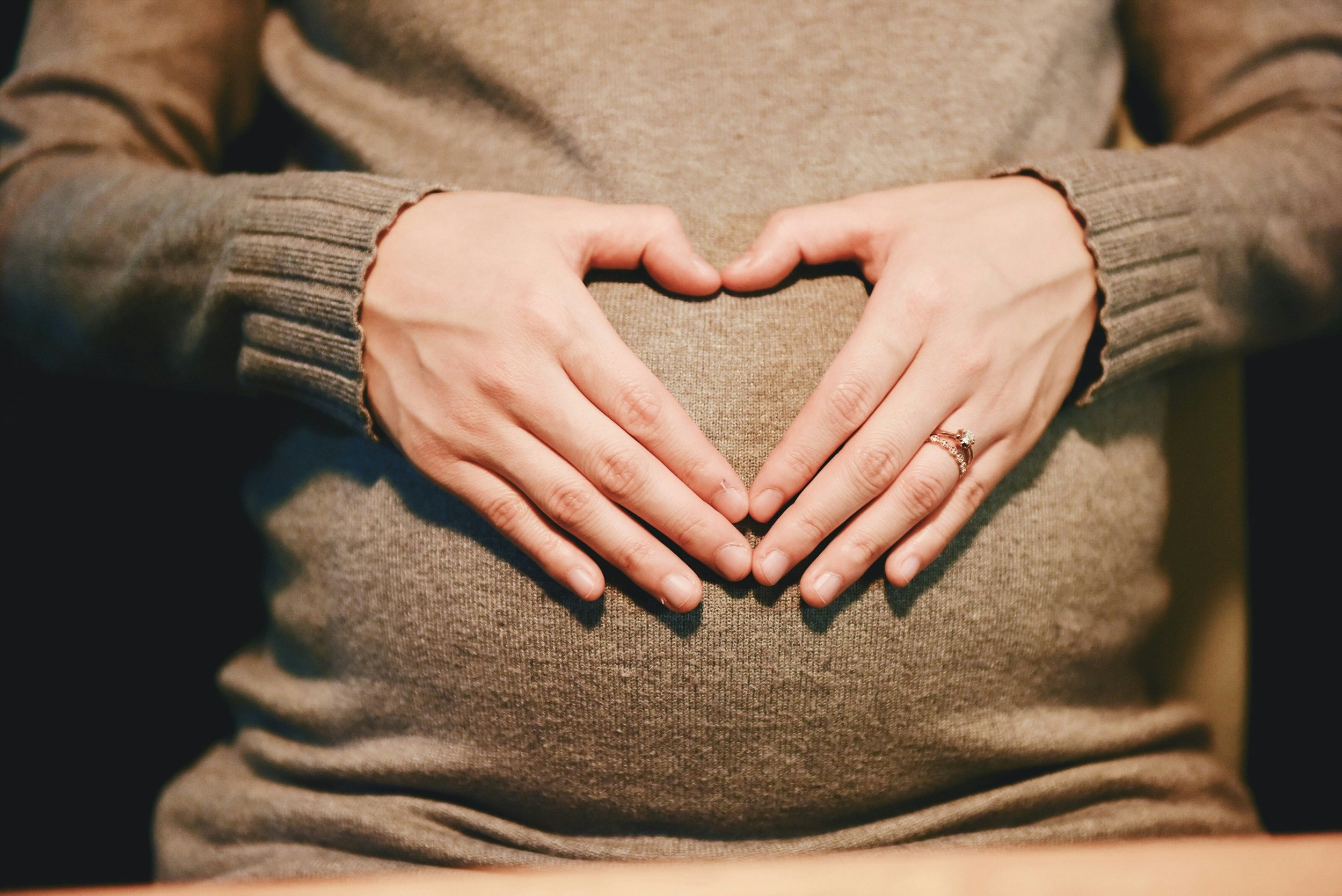Why We Need to Talk About Bipolar Disorder in Pregnancy and Postpartum.
Share
When you think about perinatal mental health, does bipolar disorder even come to mind?
For most people, the conversation tends to centre around postpartum depression, and maybe even anxiety. More recently, we’ve started hearing about conditions like postpartum OCD is and postpartum psychosis, but even then, it’s often through a sensational lens or clouded by misunderstanding and stereotypes.
Even the term we use a lot here in Australia, PNDA - short for perinatal depression and anxiety - leaves out an entire group of parents with different, but just as serious, mental health needs.
Given this, it’s no wonder that bipolar disorder doesn’t immediately come to mind in the context of perinatal mental health. But it should.
So let’s talk about what bipolar disorder is and why it needs to be part of the conversation.
Why Bipolar Disorder Needs a Seat at the Table.
The truth is, pregnancy and the postpartum period are times of heightened vulnerability, not just for depression and anxiety, but also for the onset or recurrence of bipolar disorder.
Research shows that hormonal changes, disrupted sleep, and emotional overwhelm can all contribute to the increased vulnerability during this time. Yet it’s rarely discussed.
And this silence has real consequences.
When we don’t talk about something, people can fall through the cracks. In the case of unrecognised bipolar disorder, this can look like being misdiagnosed, misunderstood, or untreated. And that can make recovery harder.
We need to change that.
What is Perinatal Bipolar Disorder?
I’m not a doctor or a mental health professional, but I care deeply about how we talk about and support mental health in pregnancy and postpartum. Bipolar disorder is something we should all understand better, especially during the perinatal period. So let’s break it down in plain language.
Perinatal bipolar disorder refers to bipolar disorder that occurs during pregnancy or the postpartum period. Bipolar disorder is a mental health condition that involves shifts in mood, energy, and behaviour. Put simply, these changes often show up as episodes of depression (the lows) and mania or hypomania (the highs).
In your words.
“I’ve been diagnosed with anxiety and depression from the age of 17, and I’ve been on and off anti-depressants. And you know, you’re like, ‘it’s worked but it’s not worked, maybe that’s just what it is.’ To actually work through that and go, ‘this is why it hasn't worked for so long!’ I'm proud of it now, I'm happy that I have this diagnosis, and it all makes sense, and you can accept it from there.”
And no, these aren’t just your everyday ups-and-downs or mood swings. These symptoms can be intense and disruptive to daily life, especially when you’re also adjusting to life with a baby.
There are different types of bipolar disorder, like Bipolar I and Bipolar II but honestly, the specific labels matter less than the fact that this condition is real, it exists, and it often goes unrecognised - especially in the perinatal period when symptoms may be dismissed as part of ‘new mum life’.
That’s why it’s so important to talk about it.
The important thing to remember is that bipolar disorder is a serious but treatable condition. With the right support and care, people with bipolar disorder can thrive in pregnancy, parenthood, and beyond.
How Bipolar Disorder Can Show Up in Pregnancy and Postpartum
First-time onset.
Some people experience their very first mood episode (depression, mania, or hypomania) during pregnancy or after giving birth, even with no prior mental health history.
Relapse.
For those with a known history of bipolar disorder, the perinatal period is a high-risk time for relapse - especially if medication has been changed or stopped. In fact, it is estimated that around fifty to seventy percent (50-70%) of women with bipolar disorder relapse during this vulnerable time.
Why Perinatal Bipolar Disorder is So Often Missed
Unfortunately, bipolar disorder can fly under the radar during the perinatal period, and there are a few reasons why.
Screening.
In your words.
“Receiving the diagnosis came as a huge relief, but it was also accompanied with overwhelming frustration and grief. If only the right questions had been asked, if they had just dug a little deeper… I wouldn’t have had to struggle so much for so long.”
Our health system isn’t always set up to catch it. Most routine mental health screening in pregnancy and postpartum focuses on depression and anxiety.
Tools like the Edinburgh Postnatal Depression Scale (EPDS) are useful, but don’t screen for bipolar disorder or mania. This is a missed opportunity.
It can look like depression.
Bipolar disorder is often mistaken for depression - especially Bipolar II where depression is more prominent and the ‘highs’ (hypomania) are more subtle, haven’t presented yet, or are praised as ‘being productive’.
In fact, as many as twenty percent (20%) of mothers who screen positive for depression may actually have bipolar disorder.
Overlap with ‘normal’ new parent struggles.
Sometimes bipolar disorder is missed completely because some symptoms can be mistaken for ‘normal’ new parent struggles. Things like racing thoughts, feeling wired, or needing less sleep can easily be brushed off as ‘new mum life’ without raising any red flags, but could also signal the start of a serious episode in someone vulnerable to bipolar disorder.
Stigma or Shame.
In your words.
“I think I did live in a bit of a denial for a little bit because I don't want to admit that. I don't want to say that at the doctors and have them look at me differently…”
There’s still a lot of fear and misunderstanding around bipolar disorder and some parents may not feel safe to disclose their symptoms. The fear of judgment can make it even harder for parents to speak up about what they’re going through - especially during a time when they feel pressure to be coping, bonding, and doing it all ‘right’.
What Happens When It’s Missed?
With most of the focus still on depression and anxiety, it means people with bipolar disorder can go unseen, unsupported, or misunderstood at one of the most critical times in their lives.
When bipolar disorder is undiagnosed, or misdiagnosed as depression, it can complicate things and make recovery harder.
In your words.
”It got to a level where I had an induced manic episode because of the medication I was on, which sounds horrible, but it was a blessing in disguise because it actually showed what was happening underneath and got me the start of the help that I needed and the diagnosis that I needed.”
Treatments for depression aren’t always effective for bipolar disorder, and in some cases they can make things worse - as a few of my podcast guests have learnt the hard way. Certain antidepressants may trigger manic episodes or increase mood instability in people with bipolar disorder.
There’s also a higher risk of postpartum psychosis after birth among people with bipolar disorder, especially Bipolar I. This is a serious condition that needs urgent care.
When symptoms of bipolar disorder are left undiagnosed:
parents may feel confused, overwhelmed, and isolated
symptoms may escalate
access to support may be delayed
recovery becomes harder
the opportunity for early intervention is missed
This is why the right diagnosis matters.
It’s Time to Expand the Conversation
We can’t support what we’re not talking about, and for too long, bipolar disorder has been left out of the perinatal mental health conversation.
In your words.
“Screening for bipolar disorder should be part of the process… just a few extra minutes could potentially save years of suffering.”
Right now, most conversations around perinatal mental health still centre on postnatal depression - and while that’s incredibly important, it doesn’t capture the full story. Conditions like bipolar disorder, postpartum psychosis, OCD, and PTSD are often left out of discussions, public health campaigns, and even screening tools.
Even the term we use a lot here in Australia, PNDA - short for perinatal depression and anxiety - unintentionally leaves out a whole group of parents whose experiences don’t fit within that label. When the language itself doesn’t include you, it can reinforce the message that what you’re going through is rare, unusual, or shameful. And that’s simply not true.
It’s time we widened the lens on what perinatal mental health really means. If we want to truly support all parents, we need to:
Use broader language like perinatal mental health, not just PNDA, to reflect the diversity of experiences parents may face.
Expand routine mental health screening to pick up a wider range of symptoms and facilitate the prompt treatment of pregnant and postpartum women - at the bare minimum, health care providers should be asking about whether there is a history of bipolar disorder in the family.
Provide training for healthcare professionals to better recognise and respond to bipolar disorder in the perinatal period.
Encourage honest, non-judgmental conversations about bipolar disorder and other complex mental health conditions in the perinatal period.
Listen to and centre the voices of parents with lived experience - no one knows these challenges better than the people who’ve walked through them. Their insights are vital for shaping real, compassionate care.
Every Parent Deserves the Right Support
Talking about bipolar disorder doesn’t create fear - it builds understanding. It helps parents feel seen, not ashamed. It opens doors to early support. And it reduces the risk of serious episodes going unnoticed.
Remember…
The more we understand how bipolar disorder can show up in the perinatal period, the better chance we have of connecting mothers with the right support.
There are effective treatments, support strategies, and care teams who understand the complexities of perinatal mental health. The more we understand how bipolar disorder can show up in the perinatal period, the better chance we have of connecting mothers with the right support - free from fear, shame, or delay.
Let’s keep expanding the conversation. Let’s make space for the full spectrum of perinatal mental health so no parent is left feeling unseen, misdiagnosed, or misunderstood.
It could be the key to prompt, safe, and effective care.
Because every parent deserves to feel supported and understood - no matter what their mental health journey looks like.
Sources
Bhat, A., Cerimele, J. M., & Byatt, N. (2018). Pregnant and Postpartum Women With Bipolar Disorder: Taking the Care to Where They Are. Psychiatric Services, 69(12), 1207–1209. https://doi.org/10.1176/appi.ps.201800133
Sit, D., Rothschild, A. J., & Wisner, K. L. (2006). A review of postpartum psychosis. Journal of women's health (2002), 15(4), 352–368. https://doi.org/10.1089/jwh.2006.15.352
This blog is informed by lived experience and is not intended as medical advice.
If you or someone you know needs support, Perinatal Stories Australia encourages you to reach out to Lifeline (13 11 14), 13YARN (13 19 76), or Suicide Callback Service (1300 659 467).

















